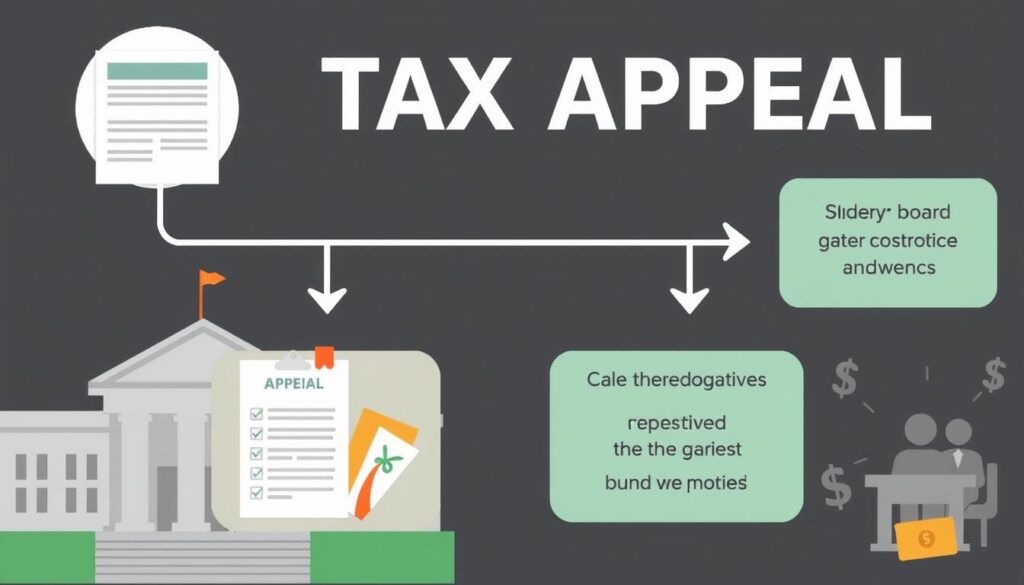For many, the mere mention of tax compliance often brings forth a wave of anxiety. It feels like a daunting whirlwind of forms, regulations, and deadlines. Yet, understanding this complex landscape is crucial for your financial health and peace of mind. Did you know that the estimated average gross tax gap projected by the IRS for 2017-2019 is a staggering $540 billion per year? After accounting for enforcement measures and late payments, the net tax gap is around $470 billion1. These figures underscore just how essential it is for individuals and businesses to be aware of their obligations. By tackling IRS requirements head-on, you can not only contribute to the system but also ensure your own financial stability. As we journey through this guide, you’ll find the tools and insights necessary to navigate the intricate world of tax regulations, helping you feel empowered and prepared for compliance.
Key Takeaways
- Understanding tax compliance is crucial for both individuals and businesses.
- The IRS projects a significant gross tax gap, highlighting compliance importance.
- Being informed about IRS requirements can help you avoid penalties.
- Complex tax regulations exist across various jurisdictions in the US.
- Proactive tax management can lead to greater financial security.
- Compliance is not just about rules; it’s a commitment to your responsibilities.
Understanding Tax Compliance Basics
Tax compliance refers to the process of meeting your tax obligations as required by federal, state, and local tax laws. Understanding the nuances of tax compliance is essential, as it ensures that you fulfill your financial responsibilities effectively. Failing to adhere to these obligations may result in penalties, legal complications, and financial stress.
What is Tax Compliance?
At its core, tax compliance involves filing accurate tax returns and paying the correct amount of taxes due within designated timelines. For example, the Federal Office of Government Ethics Regulation 5 CFR § 2635.809 emphasizes that federal employees must fulfill their just financial obligations, including federal, state, or local taxes imposed by law2. Ignoring these rules can lead you into a maze of complications.
Why Tax Compliance Matters
Maintaining tax compliance is vital for several reasons. It helps avoid serious financial repercussions like penalties and interest on unpaid taxes. For instance, the IRS imposes a 5% penalty on unpaid taxes for each month a return is late, with a maximum penalty cap at 25%3. On the other hand, non-compliance can lead to revoked licenses, damage to creditworthiness, and loss of customer trust for businesses3. This proactive approach towards understanding your tax obligations can safeguard your financial health.
Key Terminology You Should Know
Familiarity with key terminology plays a critical role in navigating tax compliance. Below are some vital terms you should understand:
| Term | Definition |
|---|---|
| Nexus | The connection or link between a business and a tax jurisdiction, which determines tax obligations. |
| Tax Deductions | Expenses that can be subtracted from gross income to reduce taxable income. |
| Tax Credits | Direct reductions of the amount of tax owed, which can be more beneficial than deductions. |
| Tax Withholding | The portion of your paycheck that is deducted and sent to the government to cover your tax obligations. |

Utilizing tools provided by the IRS, such as the Tax Withholding Estimator, can help you calculate appropriate withholding amounts from wages2. Understanding these concepts better will empower you to manage your tax compliance responsibilities efficiently.
Types of Taxes and Their Requirements
Understanding the various types of taxes applicable in the United States is crucial for ensuring compliance with tax regulations. Taxes can be broadly categorized into federal taxes, state taxes, and local taxes, each having its own requirements and implications for taxpayers. Grasping these differences will help you navigate your tax obligations effectively.
Federal Taxes
Federal taxes are mandatory for all Americans, with the Internal Revenue Service (IRS) overseeing their collection and regulation. For the tax year 2023, individual income tax rates range from 10% for those earning less than $11,000 to 37% for individuals with incomes exceeding $578,125. This means that married couples filing jointly face a threshold of $693,750 for the top rate45. The corporate tax rate, significantly affecting businesses, was set at 21% as a result of the Tax Cuts and Jobs Act in 201745.
State Taxes
State taxes vary significantly from one state to another. While some states impose a statewide sales tax, others, such as Alaska and New Hampshire, do not collect such taxes, making them attractive for certain individuals and businesses5. Additionally, some states implement gross receipts taxes, which can lead to tax pyramiding, impacting the overall costs throughout the supply chain5. This emphasizes the importance of understanding state tax regulations to ensure compliance and avoid unexpected liabilities.
Local Taxes
Local taxes are imposed by cities and municipalities, often funding essential services like education and public safety. These taxes can include property taxes, local income taxes, and sales taxes that are determined independently from state tax structures. It’s essential to familiarize yourself with local tax implications to maintain compliance and accurately budget for your obligations. For instance, estate taxes are imposed in only 12 states and the District of Columbia, adding another layer of complexity4.

Who Must Comply with Tax Regulations?
Understanding the various entities required to adhere to tax regulations helps clarify your compliance requirements. Each group has unique tax obligations based on their operations and structures.
Individuals
As an individual, you are subject to tax regulations that may include income tax, property tax, and various other obligations. Income tax is calculated based on your earnings, and compliance is vital to avoid penalties. Failure to meet these tax obligations can lead to harsh consequences, including hefty fines and interest on unpaid taxes6. Maintaining accurate financial records is essential for staying compliant with these requirements.
Businesses
Businesses of all types and sizes must navigate complex tax regulations that vary depending on their legal structure and activities carried out. Corporate tax is imposed on profits made by businesses, with tax rates differing significantly across regions. As earnings increase, you may be required to pay advance taxes quarterly7. Additionally, payroll taxes must be deducted from employee salaries, requiring precise calculations based on local definitions of salary7.
Small business owners face additional local taxes, including property and municipal taxes, which fluctuate based on location. Accurate financial documentation helps mitigate errors in tax filings and keeps businesses informed about changing compliance requirements6.
Non-profits
Non-profit organizations also have tax obligations, including maintaining their tax-exempt status, which requires compliance with specific regulations. These entities must adhere to regulations pertaining to fundraising and financial reporting to ensure they do not incur penalties. Regular audits and employee training contribute to maintaining compliance and avoiding mistakes that could lead to allegations of tax avoidance6.

Important Tax Deadlines You Should Know
Knowing the various tax deadlines is essential for ensuring compliance without a hitch. Tax obligations can vary depending on your status, whether you’re self-employed or running a business. Here’s a closer look at quarterly payments, annual tax filing dates, and specific deadlines tailored for businesses.
Quarterly Estimated Tax Payments
If you are self-employed, it’s crucial to keep track of your quarterly estimated tax payments. For 2024, the final payment is due by January 15, 2025, for income earned between September 1 and December 31, 20248. Staying on top of these deadlines helps you avoid penalties and interest on delayed payments.
Annual Tax Filing Dates
For individual filers, the primary due date for filing 2024 tax returns is April 15, 20259. The IRS will begin accepting these returns starting January 29, 20258. If you are a taxpayer who typically requires an extension, remember that October 15, 2025, marks the final day to submit your return if an extension was requested9.
Special Deadlines for Businesses
Businesses have unique deadlines to consider. For instance, W-2 forms must be submitted to the IRS and employees by January 31, 20258. If you are part of an S-corporation or a partnership, your business tax return is due by March 17, 20258. Corporations have until April 15, 2025, to file their returns, and extensions for various business structures can stretch to September and October 202589.

Common Tax Compliance Challenges
Tax compliance challenges can be daunting, especially when it comes to maintaining accurate records and following ever-evolving regulations. Staying on top of these issues not only aids compliance but can also help you avoid significant penalties down the line. Understanding the specific challenges that may arise can make a considerable difference in your overall experience with tax compliance.
Record-Keeping Issues
One of the primary tax compliance challenges you may face revolves around effective record-keeping. Many individuals and small businesses struggle to maintain organized records, which can lead to discrepancies when filing taxes. Companies with under $1 million in revenue bear nearly two-thirds of business compliance costs, primarily due to inadequate record-keeping practices and lack of structured systems in place to track expenses and deductions10.
Misclassification Problems
Misclassifying employees and contractors can pose significant risks for your business. Without proper tax classification, you may inadvertently face financial repercussions, such as hefty fines and back taxes. A common pitfall is the treatment of cash-based transactions in small businesses, where the likelihood of underpayment increases due to improper reporting10 and misclassification11. Implementing a clear understanding of employee versus contractor roles is crucial in navigating these challenges.
Navigating Tax Changes
Another layer of complexity in tax compliance is adapting to continual tax law changes. Regulations may change, impacting everything from allowable deductions to tax filing deadlines. Expiring provisions can be particularly troubling; for example, certain beneficial credits and incentives may vanish if you are not up to date on current tax law10. This can create confusion, leading to potential non-compliance and the associated penalties. Regular check-ins with tax professionals can help keep your business aligned with impending changes11.

The Role of Tax Advisors and Professionals
Navigating the complexities of tax regulations can be overwhelming. Seeking assistance from tax advisors becomes crucial when your tax situation intensifies. These professionals provide specialized knowledge that helps reduce stress and ensure compliance. Knowing when to enlist their expertise will empower you to make informed decisions.
When to Hire a Tax Professional
You should consider hiring a tax professional whenever you face complicated tax situations. Whether it’s engaging in estate planning or dealing with business taxes, their insights can prove invaluable. For example, tax advisors offer services like guidance on federal, state, and individual income tax returns12. Additionally, if you have experienced a significant life change, such as marriage or inheritance, consulting a tax professional can help to clarify the best tax strategies moving forward13.
Benefits of Professional Guidance
Utilizing the services of tax advisors not only streamlines the tax filing process but also maximizes your tax savings. They conduct thorough reviews of financial statements to identify potential savings14. Furthermore, their expertise in optimizing tax strategies allows clients to benefit from tax credits and deductions, enhancing overall financial health12. With their assistance, you can feel confident in meeting all your tax obligations while minimizing liabilities.
How to Choose the Right Consultant
Selecting the right tax consultant is essential for your long-term financial success. Start by identifying the qualifications of potential advisors; they can include Certified Public Accountants (CPAs), tax attorneys, or enrolled agents13. Always inquire about their experience in specific areas relevant to your financial circumstances, such as business or retirement planning. Finally, consider how each advisor stays abreast of current tax laws and regulations to ensure that you receive accurate and timely advice13.

Strategies for Staying Compliant
Maintaining tax compliance is crucial in avoiding legal pitfalls and ensuring smooth operations. To achieve this, implement effective tax compliance strategies that prioritize organization and the use of technology. Focusing on your financial records, utilizing reliable tax software, and staying informed about changes in tax laws will greatly enhance your compliance efforts.
Organizing Your Financial Records
Keeping your financial records well-organized simplifies tax filing and reporting. A systematic approach allows you to track expenses, income, and relevant documentation accurately. Regular audits of these records help identify any discrepancies, which can prevent compliance issues in the future. Regular training for staff on compliance-related issues, including financial record-keeping, enhances overall practices15.
Using Tax Software
Tax software plays a pivotal role in streamlining the filing process. These tools simplify return preparations by automating calculations and ensuring all necessary forms are completed accurately. Additionally, tax software can provide real-time data processing that offers up-to-date financial information, crucial for timely reporting16. By integrating technology into your compliance strategies, you can focus on other important aspects of your business.
Staying Informed on Tax Changes
Keeping abreast of new tax laws and regulations is vital. Frequent updates in tax policy can impact your compliance status. Awareness of current regulations, particularly around data privacy and protection, is crucial in industries like staffing agencies15. Subscribe to relevant newsletters and attend workshops to stay informed about any changes that may affect your organization. Compliance is an ongoing process that requires vigilance to keep up with changing laws and regulations15.

Tax Compliance and Technology
Technology is rapidly transforming the landscape of tax compliance. You might find that utilizing effective digital tools is essential for tracking expenses and simplifying the overall compliance process. These advancements not only streamline the management of tax-related matters but also improve the accuracy of reporting.
Digital Tools for Tracking Expenses
Employing digital tools can significantly enhance your ability to track business expenses. Automated software helps categorize transactions, which eases the burden of data entry and record-keeping. By implementing these tools, you can minimize errors associated with manual entries. In fact, 60% of corporate tax teams report that automation has become integral to their workflow efficiency, with AI aiding in reducing time on routine tasks and ensuring compliance with relevant regulations17.
Online Platforms for Filing Taxes
Online tax filing platforms have transformed the way taxpayers meet their obligations. They provide an accessible means for users to file returns efficiently. Many taxpayers are embracing these solutions as they allow for real-time updates and simplified processes. As technologies evolve, tax authorities equipped with modern data analytic tools can effectively monitor compliance through cross-checks of reported liabilities against other data sources, enhancing overall tax collection efforts18.
Using AI in Tax Compliance
Artificial Intelligence (AI) stands out as a pivotal element in the future of tax compliance. A notable 75% of corporate tax professionals believe that AI is crucial for boosting efficiency. This technology can not only track tax activities automatically but also assist tax professionals in making better-informed decisions17. Despite the advantages, some taxpayers may hesitate to adopt new technologies due to concerns regarding costs or potential disruptions to their current processes18.

The Importance of Accurate Reporting
Accurate reporting is vital in maintaining compliance and avoiding potential pitfalls in the tax filing process. Errors in your tax filings can have serious consequences, leading to audits, penalties, and a squander of resources. Misreported income and improper deductions pose significant risks, potentially attracting hefty fines from tax authorities19. A commitment to ensuring accuracy can create a favorable environment for businesses and individuals alike.
Consequences of Incorrect Filings
Incorrect tax filings can spiral into a range of issues, particularly audits that consume valuable time and energy. An audit can disrupt your operations, revealing inaccuracies that not only strain resources but also potentially trigger substantial penalties19. Stakeholders must understand that every tax filing carries weight; errors add stress to your financial management and can hurt your reputation.
How to Avoid Mistakes
To circumvent tax filing mistakes, consider adopting modern accounting software that automates bookkeeping tasks, thus reducing human error19. Regular internal audits should become a practice to identify discrepancies early and maintain accurate financial records. Organized financial documents can greatly simplify the tax filing process, making compliance less daunting.
Benefits of Accurate Tax Reporting
Investing effort in accurate reporting yields various reporting benefits, such as enhancing your business’s credibility with tax authorities. Accurate bookkeeping empowers your decisions, allowing for effective financial planning and growth strategies19. Engaging professional accountants or bookkeepers helps ensure that your financial records meet compliance requirements and reflect your business’s true financial health.

The Audit Process Explained
Navigating the audit process can seem daunting, yet understanding how it works allows you to manage your tax audit more effectively. An audit serves various purposes, primarily making certain that your tax returns reflect accurate information and compliance with tax rights. Knowing the potential triggers and your rights during this process empowers you to face it with confidence.
What Triggers an Audit?
Several factors can initiate an audit. The IRS typically reviews tax returns from the last three years but can go as far back as six years in instances of substantial mistakes20. Most audits concentrate on returns filed within the last two years, ensuring tax matters are resolved promptly20. Random selections by the IRS, related examinations with other taxpayers, and abnormal discrepancies in tax returns can also lead to audit notices21.
Preparing for an Audit
To prepare for an audit, gather all relevant documentation, including tax returns, receipts, and any communication from the IRS. Auditors scrutinize businesses to ensure accurate state tax reporting and compliance, aiming to identify underpaid or overpaid taxes21. Maintaining organized and accessible records for a minimum of four years is essential, as these documents may be needed for a prolonged audit period21.
Understanding Your Rights
During the audit process, taxpayers have specific rights designed to protect them. Key rights include understanding IRS procedures, receiving fair treatment from IRS employees, and privacy regarding tax matters20. Should disagreements arise regarding audit findings, the taxpayer has the right to appeal the results through a formal hearings process21. It’s crucial to be aware of these rights to ensure a fair and transparent audit experience.

How to Appeal a Tax Decision
When facing disputes with tax agencies, understanding the tax appeal process is crucial for asserting your rights. You may find several valid grounds for appealing decisions, ranging from disagreements about tax assessments to issues regarding penalties. Knowing the steps involved in the appeal process can empower you to challenge unfavorable outcomes effectively.
Grounds for Appeal
There are various grounds for appeal that you can consider when confronting tax authorities. These include:
- Disputing the accuracy of tax assessments.
- Claiming incorrect penalties have been applied.
- Disagreeing with the findings from audits or examinations.
- Questioning the legitimacy of previous tax determinations.
It’s important to note that the Board of Appeals reviews actions taken by the Department of Revenue, such as assessments and refund requests22. A timely petition for appeal can enhance your chances of a favorable outcome.
The Appeal Process
The appeal process often begins with submitting a formal written protest within a designated timeframe. For most cases, you have 30 days from the date of the letter that grants the right to appeal proposed changes23. If the circumstances allow, you may also utilize a Small Case Request if your total disputed amount of tax and penalties does not exceed $25,00023.
In instances where you disagree with a collection action, you might participate in programs such as the Collection Appeals Program or request a Collection Due Process hearing23. Keep in mind that the Board of Appeals requires all petitions to be filed electronically through their Online Petition Center22.
Tips for a Successful Appeal
To improve your chances of success during the appeal, consider the following tips:
- Gather comprehensive documentation that supports your case.
- Be clear and concise in your explanations regarding the grounds for your appeal.
- File your petitions and accompanying documents in accordance with the guidelines stipulated by the Board.
- Request a hearing if necessary; these are typically conducted virtually and recorded for your records.
Your appeal could significantly benefit from a thoughtful strategy that includes preparing a protest with a thorough explanation of responsibilities and reasons for disagreement, particularly in cases related to the Trust Fund Recovery Penalty assessment23.

The Impact of Non-compliance
Failing to comply with tax regulations can lead to significant repercussions that go beyond mere financial penalties. It’s crucial to understand these consequences to safeguard your interests and ensure adherence to your tax obligations.
Legal Consequences
Legal repercussions for tax non-compliance can be severe. Penalties for tax evasion may amount to fines up to $250,000 for individuals and $500,000 for corporations, with the possibility of facing prison sentences of up to five years24. Furthermore, there is no statute of limitations for unfiled returns, which means that tax liabilities can be audited indefinitely25.
Financial Ramifications
The financial ramifications can be staggering. The tax gap, representing the difference between taxes owed and those paid, is estimated to be around $500 billion annually in the United States24. Penalties for businesses can start at 25% of unpaid tax liabilities, creating a significant financial burden25. Increased scrutiny from the IRS on high-income individuals is making audits more likely, which can lead to even more assessments and penalties24.
Emotional Stress and Burden
The stress of non-compliance cannot be underestimated. You may experience anxiety over potential audits and the associated financial repercussions. According to a TaxConnex survey, four out of five respondents expressed uncertainty about how their companies were handling sales tax obligations, highlighting the widespread fear associated with non-compliance25. This emotional strain can take a toll on your overall well-being and professional life.

Resources Available for Tax Compliance
Navigating the complexities of tax compliance can be daunting, but various resources exist to ease the burden. Taxpayers can turn to several reliable options that provide tailored assistance for their specific needs, including IRS resources, state tax support, and non-profit organizations dedicated to tax compliance aids.
IRS Resources and Tools
The IRS offers a comprehensive suite of resources aimed at enhancing taxpayer experience and promoting voluntary compliance. Their initiatives include issue-based examinations that focus on high-risk areas, utilizing data-driven approaches to tackle noncompliance effectively26. Taxpayers can access numerous tools online, including guidelines for filing, information on deductions, and instructions on how to navigate various tax situations. For businesses, understanding federal, state, and international reporting obligations becomes simpler with the assistance of these IRS resources27.
State Tax Agency Support
State tax agencies also play a crucial role in providing support tailored to the unique requirements of different states. They offer guidance on state income and franchise tax filings and can help businesses manage complexities like nexus studies and compliance with local regulations28. By leveraging state tax support, companies can ensure they remain compliant while minimizing the risk of penalties resulting from misunderstandings of state-specific laws.
Non-profit Organizations and Help
In addition to government resources, several non-profit organizations provide invaluable support to individuals and businesses seeking to understand and comply with tax regulations. These organizations often offer educational materials, workshops, and one-on-one consulting to guide taxpayers through their responsibilities. Utilizing tax compliance aids from these groups can empower taxpayers to take proactive measures in managing their tax obligations and ensure they meet all necessary requirements to avoid pitfalls.

Future Trends in Tax Compliance
As you look ahead, it becomes crucial to understand the dynamic shifts influencing tax compliance. Changes in technology, legislation, and digital payment methods, notably cryptocurrency impact, are reshaping the landscape.
Increasing Digitalization
The ongoing rise of digital tax compliance is evident as over 100 countries enforce tax obligations on foreign businesses for registering and collecting local taxes29. Countries like Singapore have initiated specific requirements, such as mandating nonresident businesses to charge and remit GST for low-value goods and non-digital services in 202329. This trend signals a move towards greater accountability and ease in monitoring economic activities online.
Impact of Cryptocurrency
Cryptocurrency impact on taxes is becoming more pronounced. Various jurisdictions are adjusting their tax laws to accommodate digital currencies, which complicates reporting obligations for taxpayers. Norway’s recent tax collection obligation for foreign businesses offering remote services is a direct response to an evolving digital economy29. Similarly, the UK implemented rules requiring digital platforms to report sellers’ income, effective from January 2024, reflecting the necessity for transparency in crypto transactions29.
Potential Legislative Changes
Looking toward potential legislative changes, recent reforms indicate an ongoing adjustment to tax codes. For instance, Michigan’s 2023 clarification on taxing cloud computing further illustrates the evolving nature of tax compliance29. A broader trend showcases multiple countries, including those in the EU, working on reforms to expand tax collection responsibilities as the economy continues to digitize29. This progressive approach indicates governments are aware of the changing tide and need for more comprehensive regulations.

Best Practices for Long-term Compliance
Adhering to tax regulations is essential for ensuring long-term compliance. Implementing effective strategies can streamline your processes and minimize potential issues in the future.
Developing a Compliance Checklist
A compliance checklist serves as a vital tool for maintaining consistent adherence to tax policies. By outlining necessary steps, you can systematically monitor processes and requirements. This proactive approach minimizes the risk of non-compliance, ensuring your business aligns with governmental expectations as tax legislation changes. Businesses should strive for a process that incorporates built-in compliance maintenance, functioning effectively around 75% of the time to truly support long-term compliance30.
Regular Reviews of Tax Policies
Frequent reviews of your tax policies are crucial in staying informed about any changes in tax laws. Understanding the complexities involved in compliance helps prevent severe financial penalties and legal problems connected with non-compliance31. Consistent evaluation allows you to adapt to evolving regulations, keeping your operations in check.
Continuous Education on Tax Matters
Investing in continuous education on tax is vital for both individuals and businesses. Staying informed about the latest tax laws and deduction opportunities can significantly reduce your tax liability31. Utilizing resources for tax education equips you to navigate compliance challenges effectively and adapt to the ever-changing tax landscape.

Conclusion: Your Path to Tax Compliance
As you reflect on your tax compliance journey, it’s essential to revisit the key points we’ve covered throughout this guide. Understanding the fundamentals of tax regulations—including various types of taxes and who must comply—is critical for navigating your responsibilities effectively. Additionally, recognizing common challenges and utilizing resources like tax professionals can significantly bolster your ability to remain compliant. Remember, tax morale plays a vital role in compliance levels; factors such as trust and civic duty directly influence your approach to tax obligations32.
Recap of Key Points
To achieve successful tax compliance, ongoing vigilance is necessary as regulations evolve. The importance of education, clear channels of communication, and equitable procedures cannot be overstated—they significantly impact perceptions of fairness in the tax system33. Furthermore, higher tax morale is generally linked to better compliance rates, underscoring the need to cultivate positive attitudes towards tax responsibilities32. By staying informed about legislative changes and leveraging available tools, you can ensure adherence to tax requirements while minimizing the likelihood of errors.
Encouragement for Ongoing Vigilance
Establishing a proactive and informed mindset will empower you to manage your tax obligations effectively. It is essential to consistently review your financial records and policies as part of your commitment to staying compliant. Engaging in continuous education, participating in workshops, and actively seeking information from credible sources will further serve you in this endeavor. Finally, understanding the broader implications of non-compliance, such as legal consequences and financial strain, can keep you motivated to maintain your compliance status throughout your career.
Final Thoughts on Staying Compliant
Staying compliant isn’t just about fulfilling legal obligations; it’s about embracing a mindset of responsibility and contributing positively to the system. By understanding the factors that drive tax compliance, like fairness and simplicity34, you position yourself not only for compliance but for peace of mind. Remember, the path to tax compliance is an ongoing journey that requires diligence, adaptability, and a commitment to education. This approach not only mitigates risks but fosters a healthier relationship with your tax duties.
FAQ
What does tax compliance involve?
Why is understanding tax compliance important for me?
What are some common types of taxes I should be aware of?
Who needs to comply with tax regulations?
What are the key tax deadlines I should remember?
What are some common challenges in maintaining tax compliance?
When should I consider hiring a tax professional?
How can I use technology to stay tax compliant?
What happens if I file my taxes incorrectly?
What are my rights during a tax audit?
How can I appeal a tax decision?
What are the consequences of failing to comply with tax regulations?
Where can I find resources to help with my tax compliance?
What future trends in tax compliance should I be aware of?
What best practices can I follow for long-term tax compliance?
Source Links
- https://tax.thomsonreuters.com/blog/keeping-up-with-tax-regulatory-compliance/ – How to keep up with tax regulatory compliance
- https://www.irs.gov/individuals/educating-your-employees-about-tax-compliance – Educating your employees about tax compliance
- https://dimovtax.com/tax-compliance/ – Tax Compliance: Essential Steps for Individuals and Businesses Dimov Tax & CPA Services
- https://tax.thomsonreuters.com/blog/direct-vs-indirect-tax-the-differences/ – Direct vs. indirect tax: the differences
- https://taxfoundation.org/taxedu/educational-resources/primer-the-three-basic-tax-types/ – The Three Basic Tax Types
- https://www.saasant.com/blog/tax-compliance-guide/ – Tax Compliance: Essential Guide for Businesses
- https://www.linkedin.com/pulse/what-tax-compliance-why-you-need-know-small-business-owner-di-paolo – What is Tax Compliance and Why You Need to Know About it as a Small Business Owner
- https://www.experian.com/blogs/ask-experian/tax-deadlines-you-need-to-know/ – 2025 Tax Deadlines You Need to Know – Experian
- https://www.sage.com/en-us/blog/tax-due-date/ – Tax due dates & deadlines for 2025
- https://www.cfoselections.com/perspective/top-10-federal-tax-compliance-issues-for-businesses – Top 10 Federal Tax Compliance Issues for Businesses
- https://www.irs.gov/newsroom/the-tax-gap – The Tax Gap | Internal Revenue Service
- https://tax.thomsonreuters.com/blog/what-is-tax-advisory/ – What is tax advisory?
- https://www.investopedia.com/terms/t/taxadvisor.asp – Tax Advisor: Who They Are, What They Do, Regulations
- https://taxrobot.com/what-to-know-about-tax-compliance-for-businesses/ – What To Know About Tax Compliance for Businesses| TaxRobot
- https://www.forbes.com/councils/forbesfinancecouncil/2023/04/27/help-your-business-stay-compliant-with-these-strategies/ – Council Post: Help Your Business Stay Compliant With These Strategies
- https://blog.noticeninja.com/blog/mastering-tax-compliance-effective-techniques-to-ensure-your-business-is-on-track – Mastering Tax Compliance: Effective Techniques to Ensure your business is on Track
- https://tax.thomsonreuters.com/blog/unlocking-efficiency-the-impact-of-ai-on-tax-compliance-and-reporting/ – The impact of AI on tax compliance and reporting
- https://blogs.worldbank.org/en/developmenttalk/promise-and-limitations-information-technology-tax-mobilization – The promise and limitations of information technology for tax mobilization
- https://fuentesangelcpas.com/the-importance-of-accurate-bookkeeping-for-tax-compliance/ – The Importance of Accurate Bookkeeping for Tax Compliance | Fuentes and Angel CPAs
- https://www.irs.gov/businesses/small-businesses-self-employed/irs-audits – IRS audits | Internal Revenue Service
- https://comptroller.texas.gov/taxes/audit/process.php – The Auditing Process
- https://www.pa.gov/agencies/revenue/get-assistance/tax-appeals.html – Tax Appeals | Department of Revenue
- https://www.irs.gov/appeals/preparing-a-request-for-appeals – Preparing a Request for Appeals
- https://blog.noticeninja.com/blog/what-is-tax-non-compliance – Breaking Down Tax Non-Compliance: Causes, Effects, and Solutions
- https://www.taxconnex.com/blog-/the-risks-and-repercussions-of-non-compliance – Non-Tax Compliance Meaning & Risks | TaxConnex
- https://www.irs.gov/government-entities/tax-exempt-government-entities-compliance-program-and-priorities – Tax-Exempt & Government Entities: Compliance program and priorities
- https://www.pwc.com/us/en/services/tax/tax-compliance-services.html – Connected tax compliance
- https://gtmtax.com/corporate-tax-services/income-tax-compliance/ – Income Tax Compliance Services – Federal, State & Local
- https://stripe.com/guides/global-tax-compliance-2024 – Global tax compliance: 2024 tax trends and changes | Stripe
- https://www.supplyon.com/en/blog/six-best-practice-steps-for-maintaining-tax-compliance/ – Six best practice steps for maintaining tax compliance – SupplyOn
- https://febi.ai/blog/how-to-manage-complex-tax-regulations-essential-compliance-strategies-for-businesses/ – Tax Compliance Made Simple: Effective Strategies for Businesses
- https://www.taxpayeradvocate.irs.gov/wp-content/uploads/2020/11/aspects_tax_compliance_dec2007.pdf – PDF
- https://www.oecd-ilibrary.org/tax-compliance-strategies_5jfnptwjt75c.pdf?itemId=/content/component/9789264282186-6-en&mimeType=pdf – PDF
- https://www.elibrary.imf.org/view/book/9781557753175/ch008.xml – No title found









